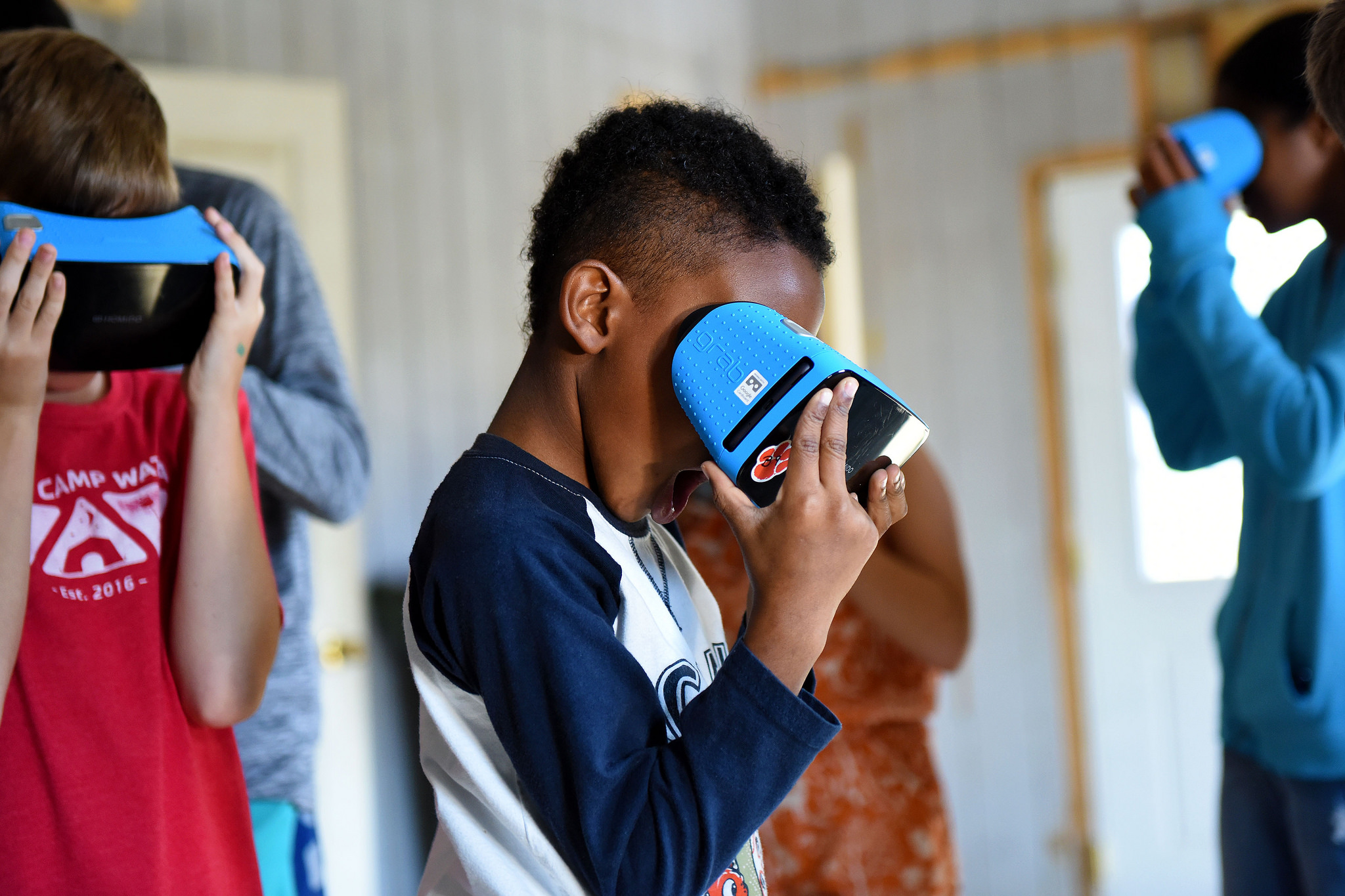The precarious position of children and autonomy in the digital age
In the past few weeks I was involved in two events that made me question autonomy in the digital age, specifically as it relates to children. The first we organised at Kennisland, on datafication in education++Datafication in educationYou can read more on that interesting event here (in Dutch).. The question raised there was: What type of people are we creating when we not only monitor children continuously through student information systems, apply gamification in classes and judge them based on what the algorithm teaches us? The second event I participated in, organised by the Public Leadership Foundation, was on autonomy in the digital age and what type of leadership is required from citizens, companies and the government to maintain autonomy in a data-driven world. The combination made me worry about children and the adults they will become if we continue on this digital path to the future.
To understand why autonomy is important to keep as a value in society, we need to delve into what it actually means. People like to think of themselves as autonomous, but rarely consider what it asks of them. In the common tongue being autonomous reads something like the ability to make your own decisions, no interference from outside forces, to be free and independent. To be autonomous requires not only the de facto status of being ‘free’ but also an attitude to be able to act on it, several skills (such as critical thinking and problem-solving) and – I would argue – a certain level of trust in society to not crumble down if we all act autonomously. It also requires a society that values autonomy, and has safeguards in place such as a right to privacy.

Now, assuming we can agree that autonomy is a good thing, and that we would like to continue to raise autonomous people in our society, we have a problem.
The requirements for autonomous people noted are under fire in the digital age. In a society where you are constantly monitored (online, in school and at home by your parents) is there room to develop your own critical thinking and personality?In a society where you are constantly monitored is there room to develop your own critical thinking and personality? In a society where ‘help’ is one app/text/tweet away, how do you learn about problem-solving? In a society where your government communicates with you through email, but you can’t email back++Mail backYou can ‘mail back’ with voting, of course. I would argue that doing that once every 4 years is not enough communication to build trust., how do you build trust? In a society where algorithms make ethical decisions++Ethical decisions made by algorithms Think of self-driving cars whose algorithm makes the call between killing their passenger or the person crossing during a red light., how do you build your own ethical framework? In a society where algorithms decide what you read, view and engage with, how can you be independent?
My first inclination was to think about leadership through regulation. Is it not the government’s job – through our trust in them – to make sure we have a well-functioning society, including having autonomous citizens? Can the government not put safeguards in place that protect children from becoming ‘non-autonomous’? Think of suitable mediation measures if citizens think their autonomy is being infringed upon, and a clear accountability of government institutions through transparency, restraint on sensitive issues and an obligation to prove the worth of something if it encroaches on autonomy questions. All useful probably, but: having to rely on a government to be autonomous is a paradox.Having to rely on a government to be autonomous is a paradox.
Then I started thinking on the role of civil society. We have to do it, and we have to do it together. We can raise autonomous children if we are aware of the issue and instill values like critical thinking, the importance of privacy and trust in society. Even though the digital revolution is against us, the people will win.
But, how will we be sure that we are thinking and acting autonomously if the world around us is programmed to give us that sense of freedom, while complying with what algorithms want us to do? How can we raise our children to be autonomous, if we can’t even be sure we are?
Here should come the part of the piece where I offer a solution. I don’t have one. I’m hoping I have simply watched too much Black How can we raise our children to be autonomous, if we can’t even be sure we are? Mirror and read too much dystopian fiction and should brighten up. That I should have more faith in people to remain independent despite our technological interventions, that companies would not let their algorithms go so far as encroach on our autonomy to this extent. That I should give the children born today more credit, that they will develop and hold onto their autonomy without the tools that I had.
I hope so, but I fear we will have to take action to safeguard our autonomy in the digital age. I’m just not sure what we should do. What do you think? Let’s start the conversation: lk@kl.nl.





